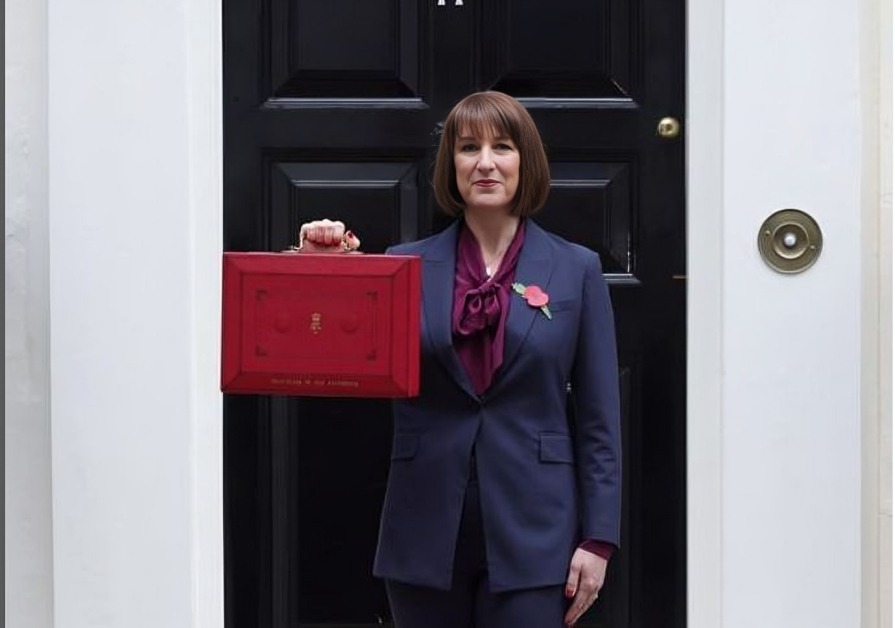On October 30, 2024, Chancellor of the Exchequer Rachel Reeves presented her inaugural budget to Parliament, marking a significant shift in the UK’s fiscal policy. This budget, the first under the Labour government in 14 years, aims to address economic challenges, enhance public services, and stimulate growth.
Budget 2024 Opening remarks
Chancellor Reeves began her address by acknowledging the public’s desire for change and the government’s mandate for a decade of “national renewal.” She emphasized the necessity of investing in the nation’s future to improve living standards and restore economic stability. Reeves stated, “The only way to drive economic growth is to invest, invest, invest.”
Key Taxation Measures
A central component of the budget involves significant tax reforms designed to increase government revenue and fund public services.
National Insurance Contributions (NICs): The government will raise employers’ NICs by 1.2 percentage points to 15% starting April 2025. Additionally, the secondary threshold for contributions will decrease from £9,100 to £5,000. These measures are projected to generate £25 billion annually by the end of the forecast period.
Capital Gains Tax and Non-Domiciled Status: The budget includes an increase in Capital Gains Tax and the abolition of the non-domiciled tax regime, aiming to ensure that high earners contribute their fair share.
Public Spending Initiatives
The budget outlines substantial investments in key public sectors to enhance services and infrastructure.
Healthcare: The National Health Service (NHS) will receive a £22.6 billion increase in its day-to-day budget and a £3.1 billion boost in capital funding over the next two years. This allocation represents the largest real-terms growth in NHS spending outside of the COVID-19 pandemic since 2010.
Education: The Department for Education will benefit from a £6.7 billion capital investment next year, marking a 19% real-terms increase from the current year. This funding includes £1.4 billion dedicated to rebuilding over 500 schools in dire need and an additional £2.1 billion for school maintenance.
Housing: The government plans to invest over £5 billion in housing initiatives next year. This includes increasing the Affordable Homes Programme to £3.1 billion, facilitating the construction of thousands of new homes, and providing £3 billion in guarantees to support smaller housebuilders.
Economic Growth and Investment
Chancellor Reeves emphasized the importance of fostering economic growth through strategic investments.
Green Hydrogen Projects: The budget allocates funding for 11 new green hydrogen projects across England, Scotland, and Wales. These initiatives position the UK among the first nations to develop commercial-scale green hydrogen projects, aligning with the government’s commitment to sustainable energy.
Fiscal Rules Adjustment: The government will adopt a new debt metric, targeting debt reduction as a share of the economy. This approach, based on Public Sector Net Financial Liabilities (PSNFL), accounts for both liabilities and financial assets, allowing for increased borrowing to fund long-term investments without breaching fiscal constraints.
Support for Low-Income Households
Addressing the cost-of-living crisis, the budget extends support to vulnerable populations.
Household Support Fund (HSF): The government will inject an additional £1 billion into the HSF starting next year. This fund assists low-income households with essential costs and will be distributed through local councils, which will determine the specific allocation based on regional needs.
Discretionary Housing Payments: A portion of the HSF will be allocated to councils for Discretionary Housing Payments, providing financial assistance to individuals struggling with housing costs.
Reactions and Implications
The 2024 budget has elicited a range of responses from various sectors.
Business Community: While some business leaders acknowledge the necessity of funding public services, concerns have arisen regarding the impact of increased NICs on employment and investment. The National Institute of Economic and Social Research (NIESR) warned that the rise in employer NICs could reduce job creation and elevate unemployment rates.
Economic Analysts: Experts have noted that the budget’s substantial public spending and tax increases represent one of the most significant fiscal policy shifts in recent decades. The Office for Budget Responsibility (OBR) indicated that while the spending surge might provide an initial boost to the economy, it may not substantially impact GDP growth over the next five years.
Conclusion
Chancellor Rachel Reeves’s 2024 budget introduces comprehensive measures aimed at revitalizing the UK’s economy, enhancing public services, and supporting vulnerable populations. By implementing significant tax reforms and substantial public investments, the government seeks to address longstanding economic challenges and lay the groundwork for sustained growth.


